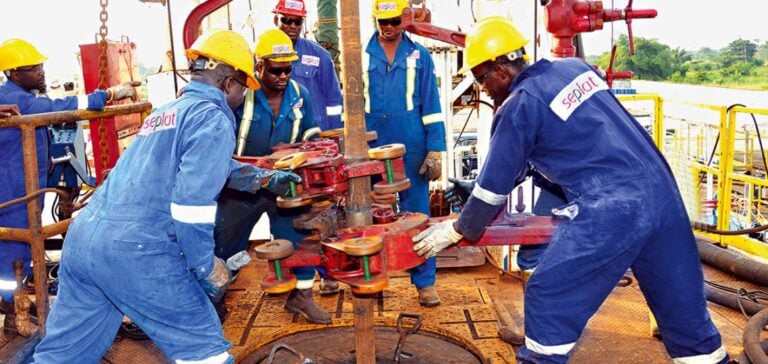In December 2024, Seplat Energy finalized the acquisition of onshore assets from the American oil major ExxonMobil, in a deal valued at $1.6 billion. This strategic acquisition provides the Nigerian company with an expanded portfolio of petroleum resources, strengthening its position in the hydrocarbons market.
Optimizing wells to meet targets
To increase its crude oil production from 50,000 to 120,000 barrels per day (b/d) by June 2025, Seplat Energy plans a massive rehabilitation of its existing wells. According to Samson Ezugworie, Chief Operating Officer of the company, there is significant untapped potential: “Of the more than 600 wells drilled, only 200 are currently operational. We aim to rejuvenate these assets to unlock their full potential.”
This plan involves intensive reconditioning of existing infrastructure and applying advanced techniques to maximize the capacity of inactive wells.
A favorable but constrained context
This strategy aligns with the national goal of increasing oil production. In December 2024, Nigeria recorded a production level of 1.51 million barrels per day, its highest in four years. The country aims to increase this figure to 2 million barrels per day in the short term, including crude oil and condensates.
However, this progress is subject to production quotas set by the Organization of the Petroleum Exporting Countries (OPEC). In 2024, these quotas capped Nigeria’s production at 1.5 million barrels per day, creating a constraint for the development plans of local players.
Strengthened leadership in the energy market
By consolidating its operations through the acquisition of ExxonMobil’s assets, Seplat Energy stands out as a key player in the Nigerian oil sector. The company, now the leading independent hydrocarbon supplier in the country, is determined to play a major role in the industry’s transformation.
However, the success of this project depends on close coordination between the private sector and public authorities. Regulatory decisions, infrastructure stability, and general economic conditions will directly influence the achievement of Seplat’s and Nigeria’s ambitions.






















